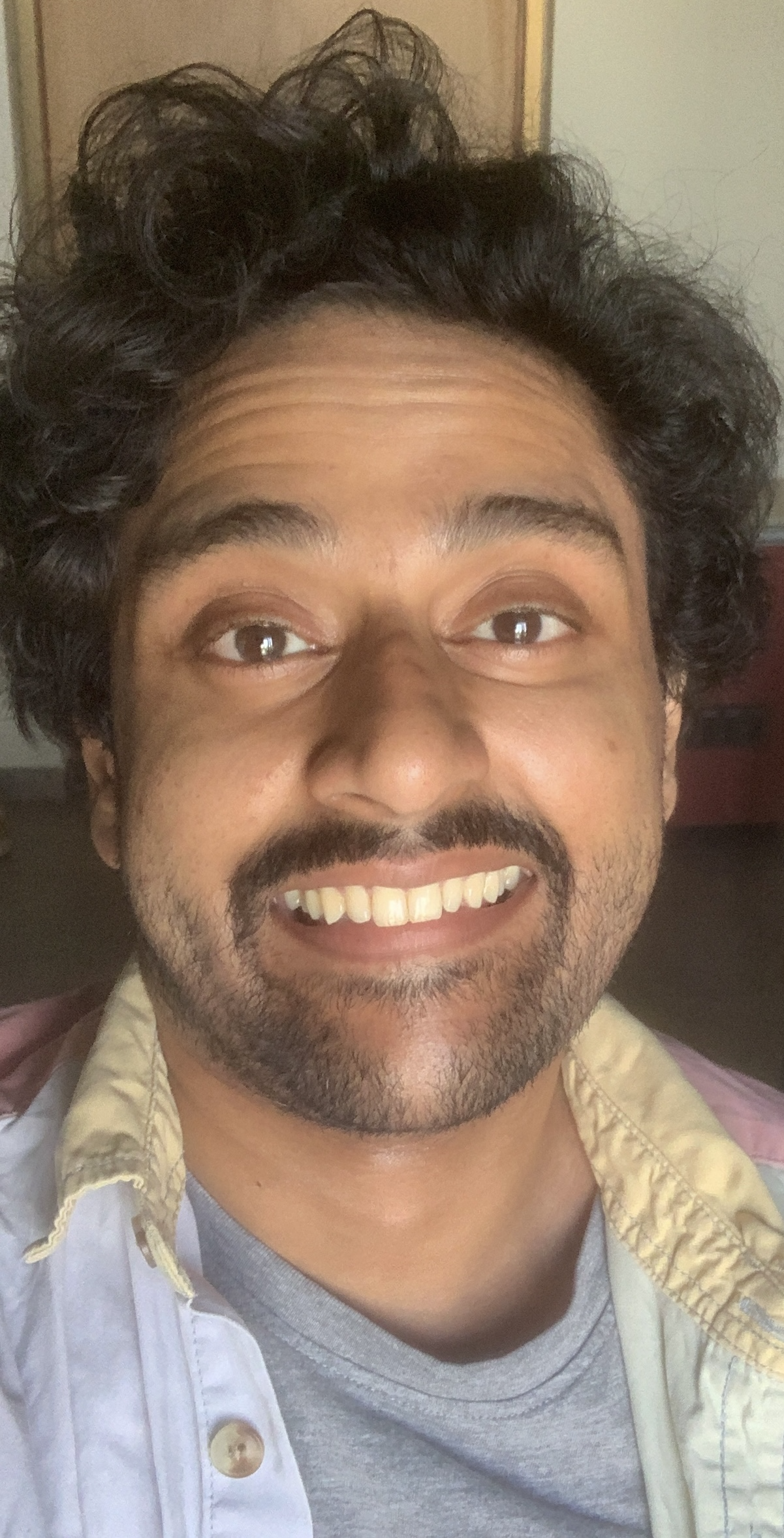 sfinnigan
Thu, 02/01/2024 - 15:22
S. Prashant
Kumar
Postdoctoral Researcher at the Rank of Instructor, Institute on the Formation of Knowledge
5737 S. University Ave
sfinnigan
Thu, 02/01/2024 - 15:22
S. Prashant
Kumar
Postdoctoral Researcher at the Rank of Instructor, Institute on the Formation of Knowledge
5737 S. University AveChicago, IL 60637 spkumar@uchicago.edu
BIOGRAPHY
I am a social and intellectual historian of science and empire, whose work examines the intersections between mathematics, astronomy, technology, and race. My current book project, The Time There: Empire and the Exact Sciences, seeks to understand how astronomical and mathematical knowledge became key to the political economy of colonial rule in South Asia, and how labour and caste relationships shaped the everyday practices of astronomy and mathematics. It was not just “Western science” that determined this story: in order to measure and distribute time, the British empire relied upon existing, caste-bound forms of knowledge and skill, from jyotiśāstra [Sanskrit astral science] to artisanal metallurgy. Following the exact sciences from the late eighteenth to the early twentieth century, the book goes on to examine how these sciences came to be used to make historical claims about mythic events and races, by colonized and colonizer alike, tracing continuities between colonial knowledge projects and the cosmology of modern Hindutva, or right-wing Hindu nationalism.
I am also an Honorary Fellow at the Archives at NCBS, Tata Institute of Fundamental Research, Bengaluru, a collecting center for the history of science in modern India. Prior to joining the IFK, I was a Research Scholar at the Archives at NCBS, Tata Institute of Fundamental Research, Bangalore; a Postdoctoral Fellow in Global Intellectual History at Humboldt-Universität zu Berlin; and a Visiting Assistant Professor of History at Haverford College. I received my PhD in History and Sociology of Science from the University of Pennsylvania in August 2021.
PUBLICATIONS
S. Prashant Kumar "The instrumental Brahmin and the “half-caste” computer: Astronomy and colonial rule in Madras, 1791–1835." History of Science 61.3 (2023): 308-337. https://doi.org/10.1177/00732753221090435
Recent Research / Recent Publications Affiliate Faculty (History)History of mathematics and statistics; history of astronomy; history of technology; South Asian history; British empire; colonialism; race
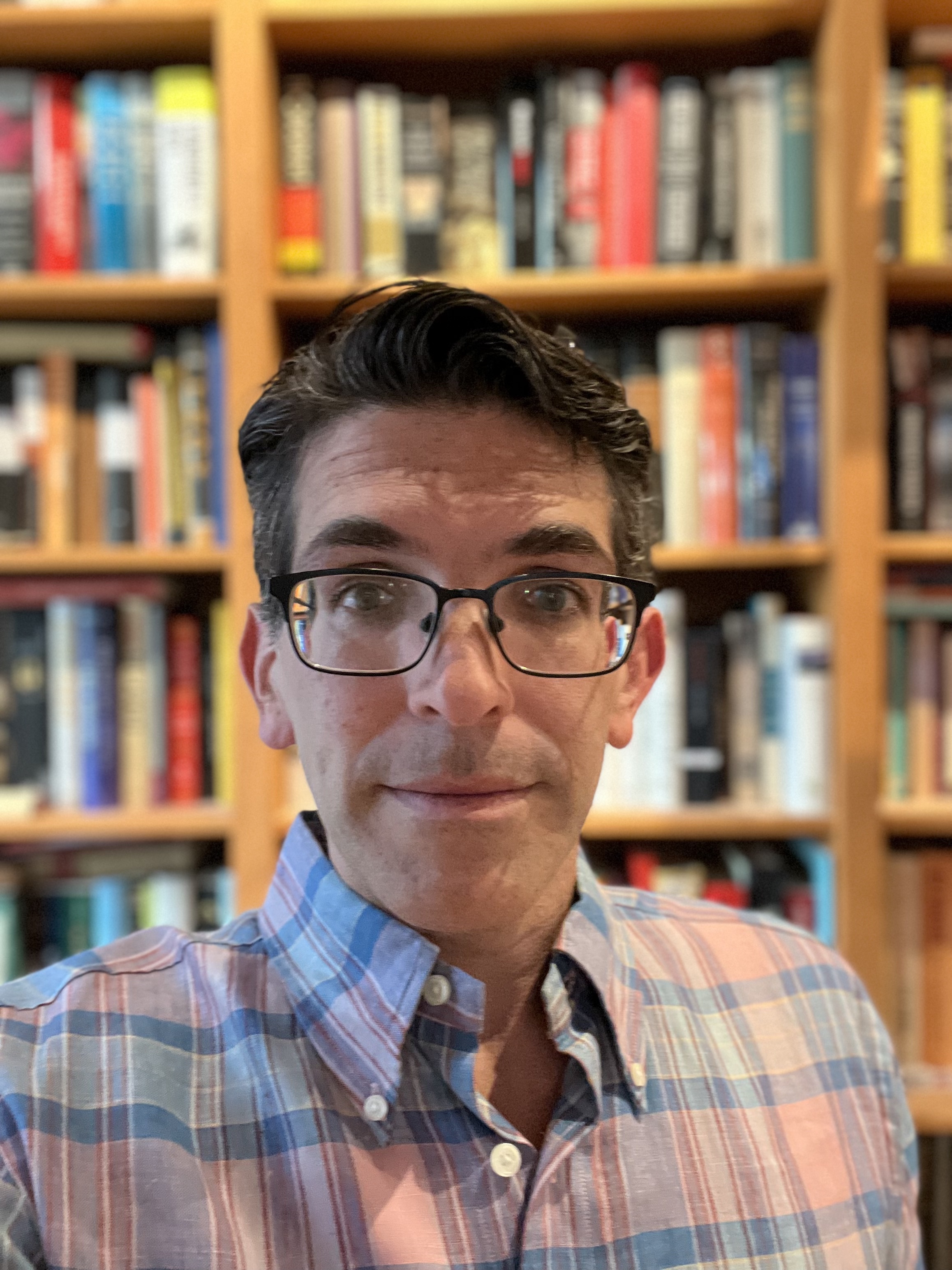 sfinnigan
Fri, 09/01/2023 - 11:18
John
McCallum
Assistant Instructional Professor in the Master of Arts Program in the Social Sciences
1155 E 60th Street, room 411
jmccallum@uchicago.edu
sfinnigan
Fri, 09/01/2023 - 11:18
John
McCallum
Assistant Instructional Professor in the Master of Arts Program in the Social Sciences
1155 E 60th Street, room 411
jmccallum@uchicago.edu
BIOGRAPHY
John McCallum is an Assistant Instructional Professor in the Master of Arts Program in the Social Sciences. He holds a PhD in history from the University of Chicago, and an undergraduate degree from Northwestern University.
John’s research interests cluster around questions of moral and ethical judgment in American history. His current book project “Democratic Violence and the Transformation of Moral Sentiments in the ‘Good War,’” examines the popular embrace of a vernacular “realism” in the World War II years that could encompass stunning new forms of international violence alongside a growing commitment to democracy, human rights, racial liberalism, and the end of empire. The book rejects a durable tradition—in both critical and popular writing—that treats the politics of war as basically undemocratic, and the American public as essentially cloistered from the realities of total war by distance, censorship, and elite manipulation. To the contrary, World War II Americans encountered the horrors of modern conflict in strikingly intimate detail. The pro-war consensus of the 1940s was anything but superficial, and a fuller picture of this period is necessary to make sense of the Cold War democracy of the ensuing decades.
Sign up for office hours here.
COURSES
At the University of Chicago, John’s teaching has included the following courses:
- War, Law, Norms: Violence and its Limits
- Writing History: Methods of Narrative Analysis and Persuasion
- Historical Methods
- History and Social Scientific Explanation
- Crises in American Democracy
- Watergate and American Democracy
- Human Rights II: History and Human Rights
- Turning Right? Conservative Politics in a Long Twentieth Century
- America in World Civilization, colonial period and twentieth century
SELECTED PUBLICATIONS
“U.S. Censorship, Violence, and Moral Judgement in a Wartime Democracy, 1941–1945,” Diplomatic History, Volume 41, Issue 3, June 2017, Pages 543–566.
“War and the Historical Sociology of Human Rights: Violent Entanglements,” Humanity: An International Journal of Human Rights, Humanitarianism, and Development 8, no. 3 (2017): 559-578.
“World War II—A Historiographical Survey,” in The Routledge History of the Twentieth Century United States (2018).
“The Book of the Dead,” The New Rambler Review (2020).
Affiliate Faculty (History) Sign up for office hours hereMoral and ethical judgment in American history
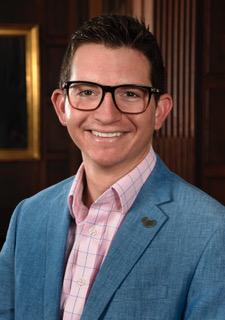 sfinnigan
Tue, 08/29/2023 - 11:44
Alexander
Hofmann
Earl S. Johnson Instructor in the Master of Arts Program in the Social Sciences and the College
Social Science Research Building, room 528
awhofmann@uchicago.edu
sfinnigan
Tue, 08/29/2023 - 11:44
Alexander
Hofmann
Earl S. Johnson Instructor in the Master of Arts Program in the Social Sciences and the College
Social Science Research Building, room 528
awhofmann@uchicago.edu
PhD'21 (US History), University of Chicago
RESEARCH INTERESTS
Nineteenth- and twentieth-century United States; history of the American South; cultural, social, and political history; race and racism; gender and sexuality; violence; science, medicine, and the body; mass and visual culture; collective memory; public history
DISSERTATION
Southern Sublime: Legacies of Civil War Violence in the New South
BIOGRAPHY
Alex is a cultural historian of the nineteenth- and twentieth-century American South. He is interested in how the presumed oddities of Southern life make legible currents of the U.S. experience that ran subterranean through other regions. In this light, the regional provides a framework to realize a fuller understanding of U.S. history, its myths, and its contradictions.
He is working on his manuscript titled Shattered: The South after the Civil War, which examines how the war’s destruction forced white Southerners to create new ways of making meaning from the material world through everyday spectacles that both processed and restaged its violence long after Confederate surrender.
More broadly, Alex’s diverse research interests cohere around an interdisciplinary approach that reframes historical oddities as meaningful evidence of how Americans made meaning of the political, economic, and social worlds they inhabited through their lived experience.
Alex earned his PhD from the University of Chicago in 2021, and his work has appeared in Southern Cultures.
PUBLICATIONS
“The Kinetic South.” Southern Cultures 27, no. 2 (2021): 62-83.
[Book Review] Bone Rooms: From Scientific Racism to Human Prehistory in Museums by Samuel J. Redman. American Nineteenth Century History 18, no. 2 (2017): 196–98.
Recent Alumni (History) Affiliate Faculty (History)Nineteenth- and twentieth-century United States; history of the American South; cultural, social, and political history; race and racism; gender and sexuality; violence; science, medicine, and the body; mass and visual culture; collective memory; public history
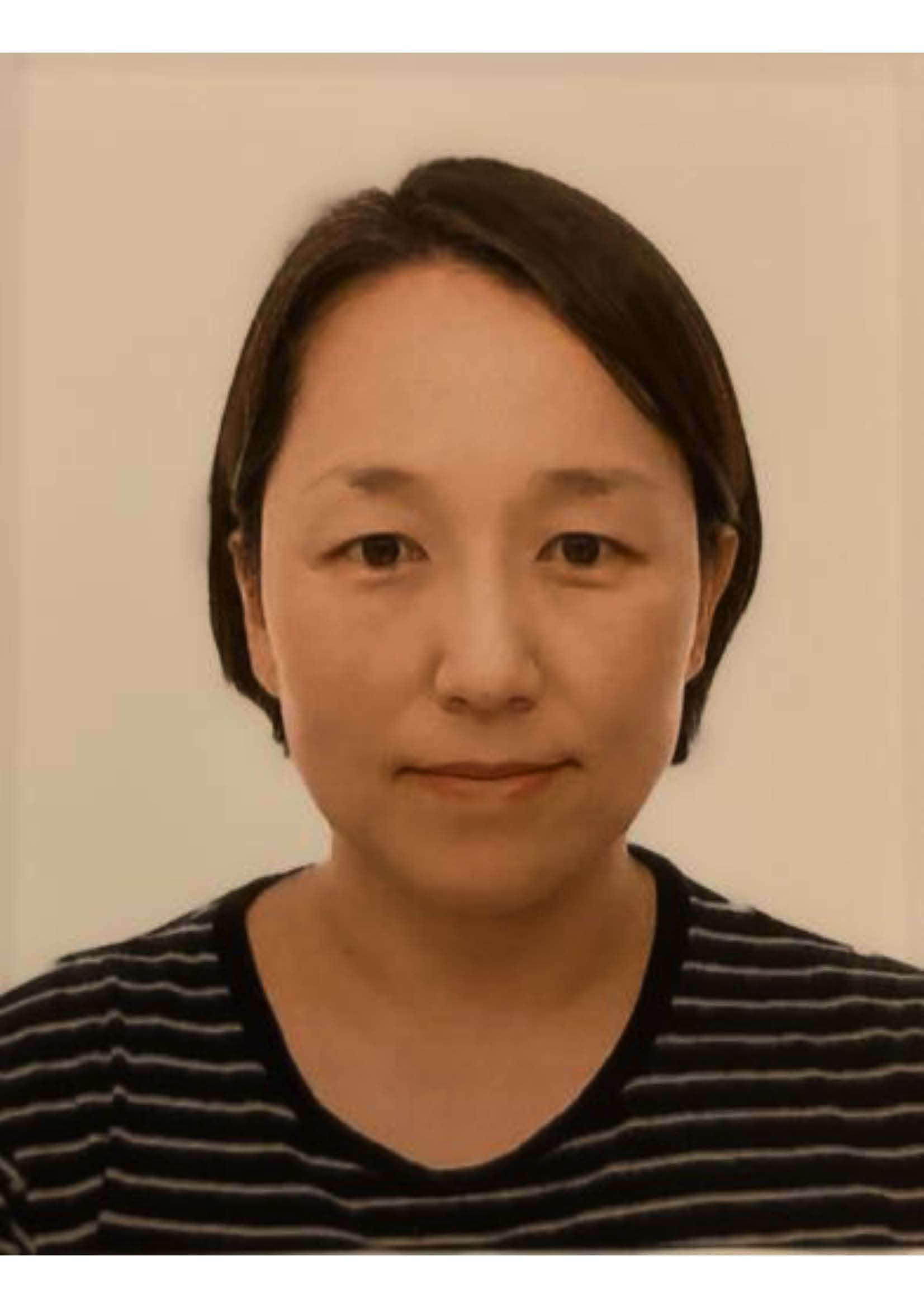 sfinnigan
Tue, 08/22/2023 - 10:22
Eunhee
Park
Instructor in History
eunheep@uchicago.edu
sfinnigan
Tue, 08/22/2023 - 10:22
Eunhee
Park
Instructor in History
eunheep@uchicago.edu
RESEARCH INTERESTS
My primary research projects have focused on the intersections of women, labor, and capitalism in South Korea and a comparative analysis of Cold War-era popular culture, gender, and society in East Asian countries. Currently, I am writing a book manuscript, entitled "Reimagining Cold War Domesticity: South Korean (De)Housewifization, Family Economy, and Consumer Capitalism," about the economic and cultural history of postwar South Korean domesticity, which considers how the transnational gendering processes of domesticity shaped to naturalize and produce derivatives in relation to class stratification, state, culture, and economy. I want my research to reframe Cold War-era historical narratives by focusing on women's labor and the family unit, demystifying the hegemonic place the U.S. occupies within Korean and East Asian history during the Cold War. The second book project will expand my research interests in gender history into transnational, cultural, and economic dimensions and investigate women's work in the private education industry in Korean diaspora communities in the U.S. and other Asian countries.
BIOGRAPHY
Since earning my Ph.D. in modern Korean history at the University of Wisconsin-Madison, I have taught various courses related to Korea and Asia, addressing history, gender, culture, society, and politics at CSU-Chico, Vytautas Magnus University, Lithuania, Seoul National University, and Soongsil University. Before joining the University of Chicago, I finished a postdoctoral fellowship at the Zvi Yavetz School of Historical Studies at Tel Aviv University. I worked as an HK research professor at the Institute for the Study of Korean Modernity at Yonsei University in South Korea.
2023. “Selling Trust: Solicitation Subscriptions and the Feminization in the South Korean Insurance Industry during the Cold War Era, ” Korea Journal, March 2023.
2022. “South Korean Housewives’ Emerging Economic Authority and Contestation of Domesticity during the Cold War Era,” Gender and History, July 2022, 1-23 (print version forthcoming, July 2024).
2022. “Dreaming of Intact Home Front: Erasing Female Subjectivity in Popular Media Representations of the Vietnam War.” Seoul Journal of Korean Studies 35, no. 1 (June 2022): 187–213.
2018. “Kyebaram: The Culture of Money and Investment in South Korea during the 1970s.” In Cultures of Yusin: South Korea in the 1970s, edited by Ryu Youngju, 89-118. Ann Arbor: University of Michigan Press.
The intersections of women, labor, and capitalism in South Korea and a comparative analysis of Cold War-era popular culture, gender, and society in East Asian countries.
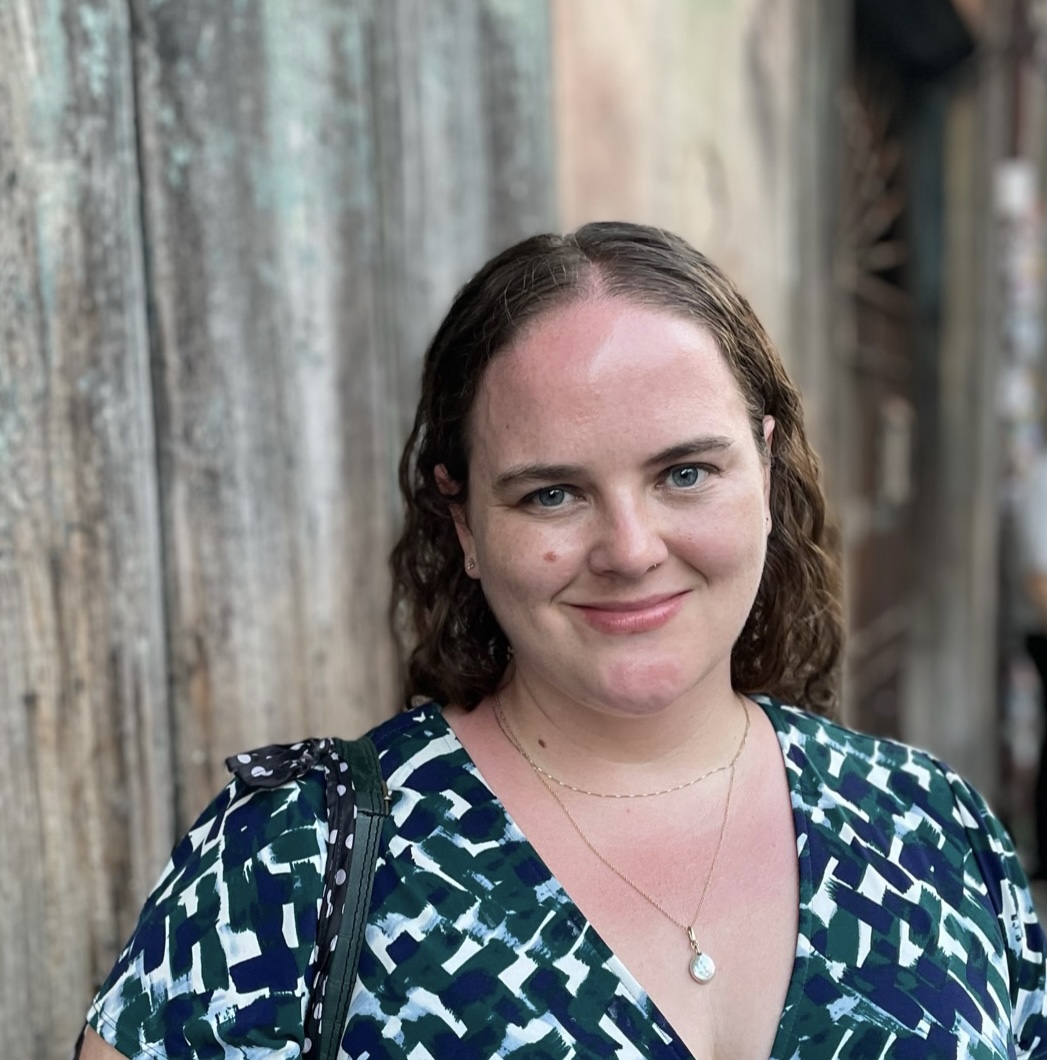 sfinnigan
Tue, 08/22/2023 - 09:35
Deirdre
Lyons
Earl S. Johnson Instructor in History
dtl412@uchicago.edu
sfinnigan
Tue, 08/22/2023 - 09:35
Deirdre
Lyons
Earl S. Johnson Instructor in History
dtl412@uchicago.edu
RESEARCH INTERESTS
Slavery and emancipation; the early modern and modern Caribbean; the Atlantic World and early Americas; France and Francophone colonies; histories of gender and sexuality; and histories of race and racial politics.
PUBLICATIONS
“‘They Are Free with Me:’ Enslaved and Freed Women’s Anti-Slavery Lawsuits in the French Antilles, 1830-1848.” Forthcoming in French Historical Studies, 2024.
RECENT AWARDS
2024: Schomburg Center for Research in Black Culture Short-Term Research Fellowship
2023: John Carter Brown Library Short-Term Research Fellowship
2022-2023: Omohundro Institute of Early American History and Culture NEH-Postdoctoral Research Fellowship
BIOGRAPHY
Deirdre Lyons is an Earl S. Johnson Instructor of History in the MAPSS program. She received her PhD from the University of Chicago, an MA in History and an MA in Social Sciences from the University of Chicago, and a BA in History from New York University. She has held postdoctoral and research fellowships from, among other institutions, the Omohundro Institute of Early American History and Culture, the John Carter Brown Library, the Schomburg Center for Research in Black Culture, the University of Chicago, the École des Hautes Études en Sciences Sociales, and a Fulbright U.S. Student fellowship.
Dr. Lyons’s research focuses on the history of gender, family, and racial politics before and after the second abolition of slavery in the French Antilles in 1848. Her book manuscript-in-progress, entitled Slavery, Emancipation, and Family Politics in the Nineteenth-Century French Antilles, draws on over two years’ of archival research in France, Martinique, and Guadeloupe to examine the intimate, gendered lives of enslaved and freed peoples who helped to shape the contours of slavery and emancipation, while shedding new light on how French reformers, colonial authorities, and planters tried to remake a post-slavery society by disciplining and reforming the family lives of the laboring populations. At its core, Dr. Lyons’s project illuminates how the family became a site of contestation over freedom’s limits before and after slavery in Martinique and Guadeloupe. Her work also reveals how enslaved and freed people—especially women—created cultural and social familial institutions in bondage and in freedom that served as survival strategies, a means of establishing autonomy, and as spaces from which they could counteract exploitation.
In addition to her research, Dr. Lyons has extensive experience in academic service and projects beyond academia. She has served as the Assistant Reviews Editor for the Journal of African History and is the current Tech Officer for the French Colonial Historical Society. She also has engaged in several public-facing history projects, including co-curating a special exhibition at the Haitian American Museum of Chicago and consulting on policy research for anti-human trafficking NGO’s.
Affiliate Faculty (History)Slavery and emancipation; the early modern and modern Caribbean; the Atlantic World and early Americas; France and Francophone colonies; histories of gender and sexuality; and histories of race and racial politics.
